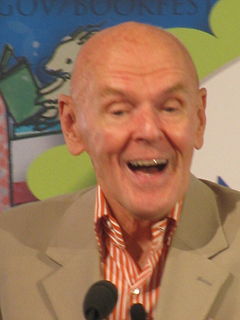A Quote by Richard Peck
[A young adult novel] ends not with happily ever after, but at a new beginning, with the sense of a lot of life yet to be lived.
Quote Topics
Related Quotes
The wise old fairy tales never were so silly as to say that the prince and the princess lived peacefully ever afterwards. The fairy tales said that the prince and princess lived happily ever afterwards; and so they did. They lived happily, although it is very likely that from time to time they threw the furniture at each other.







































